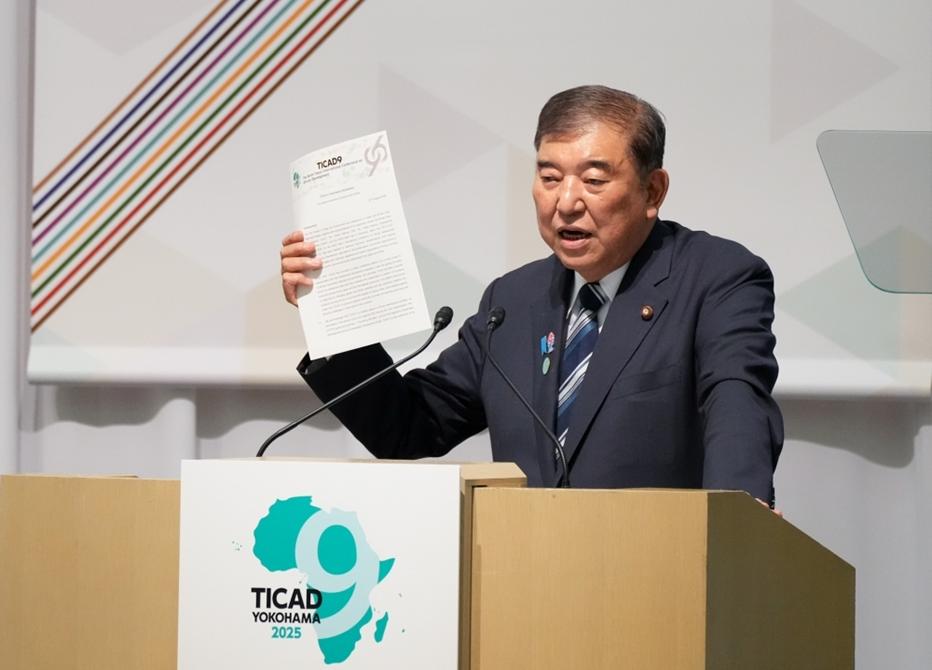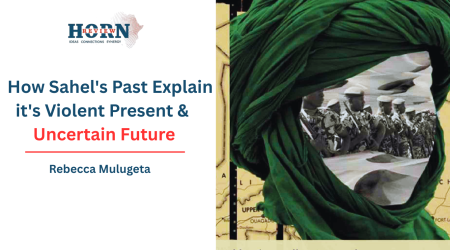
29
Aug
TICAD 9: Achievements, Challenges, And Way Forward
With its powerful theme, “Co-creating Innovative Solutions with Africa,” the Tokyo International Conference on African Development (TICAD 9) took place from August 20th to 22nd in Yokohama. The government of Japan, in collaboration with the UN, UNDP, and AUC, has successfully carried out the conference, which is the 9th meeting held since its inception in 1993. The theme of the 9th conference emphasizes the significance of locally rooted solutions for African development challenges such as peace and stability, economic growth, and social development issues. The conference involves 49 African countries, including 33 heads of state.
TICAD meetings were held in Japan every five years till 2013. Since then, the Summits have been convened every three years. Since 2016, meetings have been organized alternately in Japan and Africa. Tunisia is the second African country to host the TICAD Conference, after Kenya in 2016.
For anyone who follows African politics closely, it is easily perceptible that the African heads and representatives did their best to benefit from these kinds of meetings. Djibouti’s Ministry of Foreign Affairs was able to sign an MoU with Libya for political consultation on its sideline efforts during the conference. Djibouti’s minister of foreign affairs also held a meeting with his Japanese counterpart.
The two countries’ ministers of foreign affairs agreed to strengthen bilateral relations, with Japan expressing gratitude to Djibouti for its support of the Self-Defense Force facility and Djibouti reciprocating with appreciation for Japan’s anti-piracy efforts.
Kenya, represented by President William Ruto, held a meeting with Toyota Tsusho Corp./CFAO (TTC) to strengthen cooperation in healthcare and personal care facilities.
Ethiopia’s representatives, on their part, invited Yokohama businesses to invest in Ethiopia and proposed deeper parliamentary ties, a sister-city partnership with Addis Ababa, and expanded academic exchanges. Both Ethiopia and Japan expressed commitment to advancing practical cooperation for mutual benefit. In a meeting with the Director of the World Trade Organization’s (WTO) Accessions Division, Maika Oshikawa, the state minister emphasized Ethiopia’s progress and roadmap toward securing WTO membership.
The African leaders tried to benefit from these triennial TICAD meetings. The delegates are active as they are in no position to lose chances to fulfill goals set, including the AU’s Agenda 2063 and the 2030 SDGs.
PM Ishiba announced around 10 cooperation initiatives in the area of industry, expansion of the private sector, impact investing, training of 30000 AI personnel over the next three years, investment on healthcare sector, supporting vaccine supply in Africa, supporting the African Continental Free Trade Area (AfCFTA), establishment of Public-Private-Academia Joint Study Group, launch of the “Economic Region Initiative of Indian Ocean-Africa” and realizing a virtuous cycle of peace, growth, and stability in Africa through the “Africa Mine Action Platform” and the promotion of Women, Peace, and Security (WPS).
TICAD 9 further declares that it will work to align its goals with the rapidly changing African development priorities. It is reported that since TICAD 8 in 2022, Japan has supported 73 projects in 39 countries with 114.4 million dollars. Since the financial support is insignificant when compared with the breadth and extent of the challenges that Africa faces, the recent shift from engaging only governments to involving the private sector and establishing bilateral investment projects is the right path that diversifies financial sources and mutual benefits.
In the next three years, Ethiopia must align its projects with these initiatives, which are already ongoing with the government’s financial support. For instance, the pledge to train AI personnel is significant as Ethiopia has already set a goal on this under the Digital Ethiopia 2025 Strategy.
This TICAD9 initiative can help Ethiopia to train more than 2000 AI specialists during the next three years. Ethiopia should not fail to use this opportunity. Moreover, since the TICAD 10th summit will be convened in Africa in 2018, Ethiopia should make a bid to hold the next summit in Addis Ababa. It is well-known that the capital, Addis Ababa, and its people are warmly welcoming and generous people, whose hospitality culture can be extended to delegates, participants, and visitors alike.
If Ethiopia gets the chance, preparation must start immediately to carry out this conference. Among others, Ethiopia should learn from the Kenya and Tunisia experiences, which have already held these meetings. Above all, Ethiopia’s TICAD committee should be formed to appropriately use each opportunity extended by the 9th TICAD conference initiatives.
By Markos Haile Feseha(PHD), Researcher, Horn Review
Reference
UNDP. 2025. “TICAD9 IMPACT REPORT” file:///C:/Users/markos/Downloads/ticad_the_impact_report.pdf
2025. “TICAD 9 Yokohama Declaration Co-create innovative solutions with Africa.” August 22.
2025. “TICAD 9: Closing remarks by H.E. Mr. Ishiba Shigeru, Prime Minister of
Japan”










